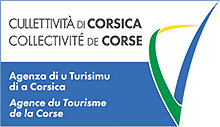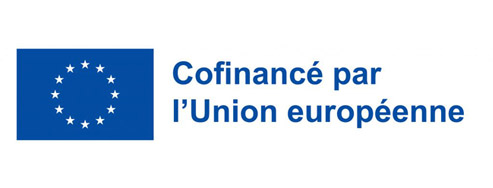Rechercher...
Explore Corsica
Napoleon, the long-awaited cinematic event

Here's a look at the town that saw the birth of one of the most iconic figures in Corsica and France, and whose history has been red-hot ever since.
 ©CORSE MATIN
©CORSE MATIN
 ©ATC S.ALESSANDRI
©ATC S.ALESSANDRI
To understand what's going on, let's delve a little deeper into the past. Back to 1769, the year in which the great Napoleon Bonaparte was born, but also the year in which Corsica officially became French, after the infamous battle of Ponte Novu. Fourteen years of independence under General Pasquale Paoli nonetheless succeeded in wiping out four centuries of Genoese domination. Napoleon's father was a great follower of the general, and it was against this difficult backdrop of conflict between rebels and governments that the future Emperor of France was born on 15 August in Ajaccio. At the time, Ajaccio had less than five thousand inhabitants. The young Bonaparte grew up here with his brothers and sisters, surrounded by the modest walls, ancestral traditions and native language of the small town. Following his military studies on the continent, Napoleon became 1st consul in 1801. He then put in place an expansion and regeneration plan that marked the beginning of the redevelopment of his native town. A large square, botanical gardens, a town hall, a theatre, areas for growing tea, coffee and silkworms and many other cultural projects were laid out to give a new lease of life to the city of Ajaccio. Later, around 1811, he decided to make Ajaccio the prefecture of the single department of Corsica. This period marked the economic and social development of the town, now considered the capital of southern Corsica.
 ©CORSE MATIN
©CORSE MATIN
While some of the film's anachronisms seem to have already been pointed out by historians, it is common knowledge that the American director uses historical facts as inspiration to construct a marvellous epic. In this sense, Ridley Scott's history may differ from reality, but it is no less essential for fuelling the fantasies surrounding the life of this illustrious figure.
While some of the film's anachronisms seem to have already been pointed out by historians, it is common knowledge that the American director uses historical facts as inspiration to construct a marvellous epic. In this sense, Ridley Scott's history may differ from reality, but it is no less essential for fuelling the fantasies surrounding the life of this illustrious figure.
What's more, the acting of perfectionist Joaquin Phoenix was probably fuelled by an in-depth study of Bonaparte's personality, habits, upbringing and environment. All the influences of his youth that followed the statesman throughout his rise to prominence. The most emblematic of these Napoleonic memories of the imperial city are those that remain, such as the Grotto of his boyhood. A small cavern beneath an imposing rock once held the most precious secrets of its young host. The secrets that would shape the man of the century, from his wildest dreams to his deepest fears, his joys and his notorious ingenuity. A childhood that blossomed within the narrow walls of this symbolic hiding place, reminiscent of Plato's Cavern. A protective refuge that would gradually guide him towards authentic knowledge and great ambitions. Napoleon's house, now a dedicated museum, is also one of the most vivid reminders of his lifetime. Less well known, however, is the house that witnessed his first steps, opposite the cathedral, which bears the inscription "Napoléon was born in this house". The Ajaccio town website offers visitors the chance to follow the "Napoleonic routes": https://www.ville-imperiale.com/napoleon/ajaccio/les-parcours-napoleoniens/ , three itineraries that allow visitors to discover the town from the perspective of its imperial past, but also to understand the influence of the Bonaparte family within the town.
 ©ATC S.ALESSANDRI
©ATC S.ALESSANDRI
 ©ATC S.ALESSANDRI
©ATC S.ALESSANDRI
 ©ATC S.ALESSANDRI
©ATC S.ALESSANDRI
The film evokes an identity and a certain pride for the islanders, and invites us to discover a cultural city that has been active since 1769, reflecting the beginnings of the Emperor's great deeds. At the end of his life, in exile in Saint Helena, the Emperor wrote these touching lines: "If I was unable to carry out what I had planned for Corsica, I at least have the satisfaction of having done something for Ajaccio".
The prodigious rise of a small islander who was supported by his home town and became sovereign of France, brought to light by one of the greatest directors of his time, is to be discovered since the end of November.
 ©CORSE MATIN
©CORSE MATIN
 ©ATC S.ALESSANDRI
©ATC S.ALESSANDRI
Locate


powered by cd-media.fr



